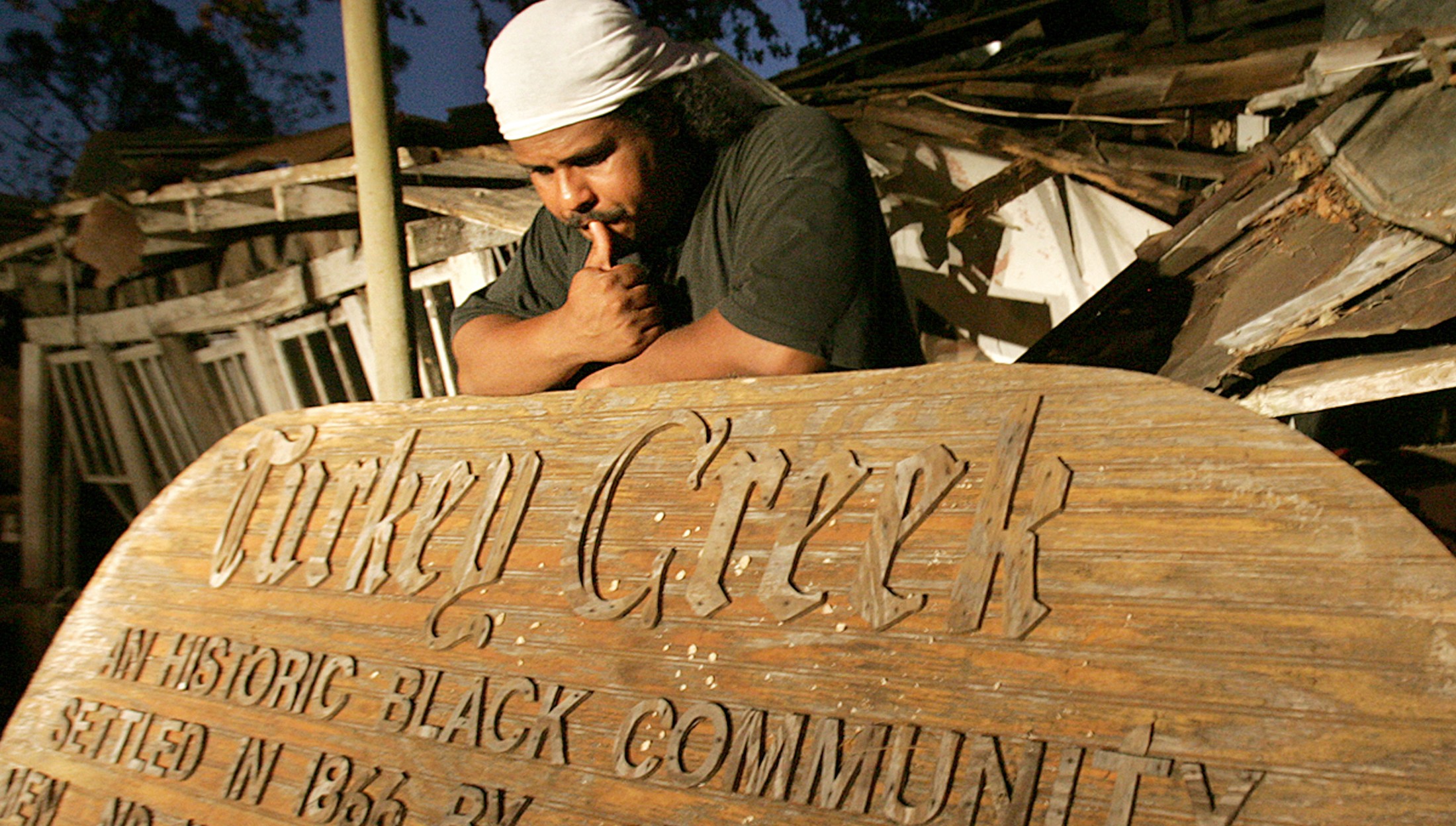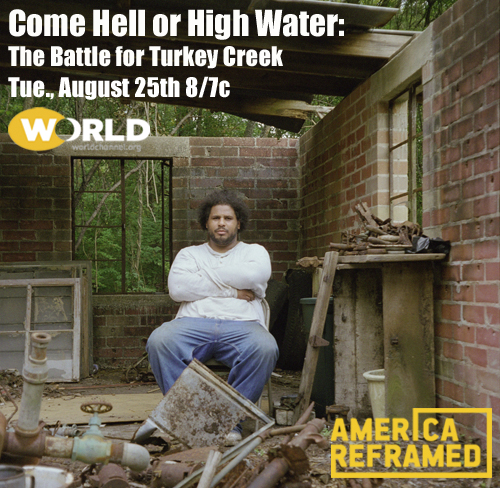
A decade later, what is the legacy of Hurricane Katrina?
A few national organizations and publications are considering this question by looking at the story of Turkey Creek:
The New Republic published an article titled “After The Deluge: Building climate justice from the wreckage of Hurricane Katrina” that focuses on Turkey Creek; the Union of Concerned Scientists is studying Turkey Creek for an upcoming report looking at equity and climate change; and ABC News is researching Turkey Creek for a digital project on the storm.
The WORLD Channel will have an encore broadcast of Come Hell or High Water: The Battle for Turkey Creek on August 25th*, and special screenings in Boston and San Francisco will feature panel discussions about how the aftermath of Katrina revealed intersections between environmental disaster and inequities in our society and spawned new ways of working for change.
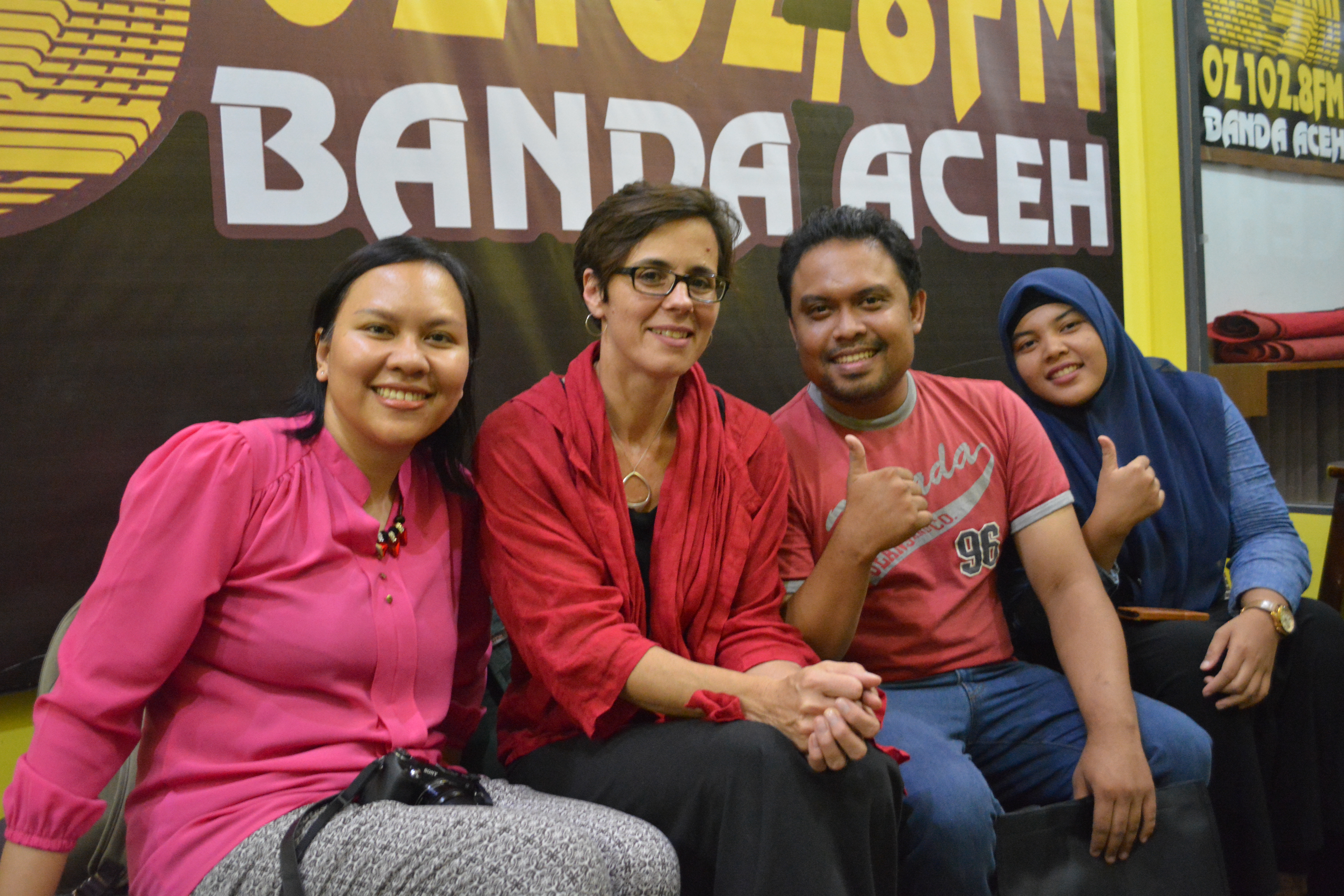
Turkey Creek and Climate Change
The Union of Concerned Scientists (ucsusa.org) is working on a report looking at equity and climate change and one of the case studies will likely describe Gulfport, MS and the Turkey Creek Community. Economist Rachel Cleetus and others are examining data from coastal counties to describe some ways of ensuring that investments in climate resilience are better targeted and more inclusive and just. Look out for the report from UCS in fall 2015.
The New Republic published “After The Deluge: Building climate justice from the wreckage of Hurricane Katrina,” quoting Rose Johnson, Derrick Evans, Jacqui Patterson and others about Turkey Creek as emblematic of climate justice, “a global phenomenon with a disproportionate impact on the poor and people of color.”
The American Film Showcase posted Leah Mahan’s Reflections On Indonesia from an April tour with Come Hell or High Water on the islands of Java, Sulawesi and Sumatra. Additional photographs and links (including an article in the Jakarta Post) can be found in this previous blog post.
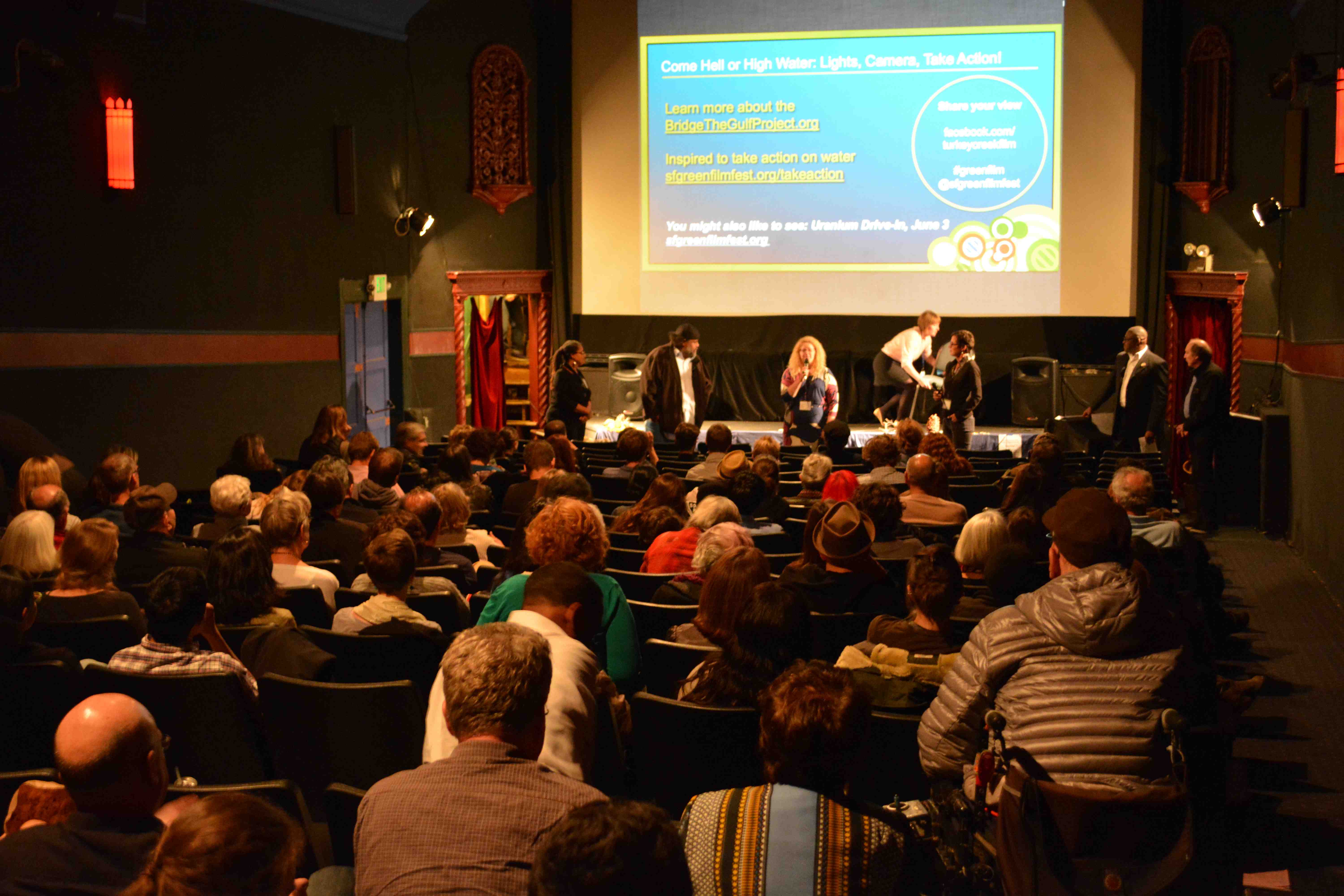
Upcoming Events
August 12 at 6pm
The Conservation Law Foundation in Boston will host a screening and discussion with filmmaker Leah Mahan, Derrick Evans of Turkey Creek and special guests: Kalila Barnett, Executive Director, Alternatives for Community and Environment; Leslie Fields, Director of Environmental Justice for the Sierra Club; Mel King, activist, educator and author (Chain of Change: Struggles for Black Community Development); and Greg Watson, Director of Policy and Systems Design, Schumacher Center for New Economics. Details and RSVP here.
August 25 at 8e/7c
The WORLD Channel series America Reframed will air Come Hell or High Water and the post-broadcast discussion recorded in 2014 with Derrick Evans, journalist Brentin Mock and series host Natasha del Toro. Details at bit.ly/TurkeyCreek. Check your local listings* at http://worldchannel.org/schedule/localize/.
*Most stations air the “America ReFramed” series on Tuesdays at 8e/7c, but KQED, for instance, airs it at off hours and will show it at 11pm on the anniversary of Katrina. Here are a few air times:
Boston: 8/25 on WGBH World at 8pm
2.2 – Broadcast TV
209 – Comcast
New Orleans: 8/25 on WYES World at 7pm
12.2 – Broadcast TV
New York: 8/25 on WILW World at 8pm
21.3 – Broadcast TV
1278 – Time Warner
San Francisco: 8/29 on KQED World at 11pm
9.3 – Broadcast TV
190 – Comcast
August 29 at noon
Literacy for Environmental Justice (LEJ) in San Francisco will co-host a screening and discussion at the EcoCenter on the anniversary of Katrina, with the Aquarium for the Bay and the San Francisco Green Film Festival. A panel discussion with Leah Mahan and young Eco-Stewards of Bayview Hunters Point will be moderated by Milton Reynolds, Board President of LEJ and Senior Program Associate with Facing History and Ourselves. Details and RSVP here.
October 15-18
The Great Mississippi Road Trip (October 15-18) will mark the 10th anniversary of Katrina with a discussion of Come Hell or High Water. Leah Mahan and Derrick Evans will take part in this annual event hosted by the Mississippi Center for Justice. Details and RSVP here.
November 18-22
The Society for Visual Anthropology Film and Media Festival will screen Come Hell or High Water at the annual meeting of the American Anthropological Association
in Denver. Details here.
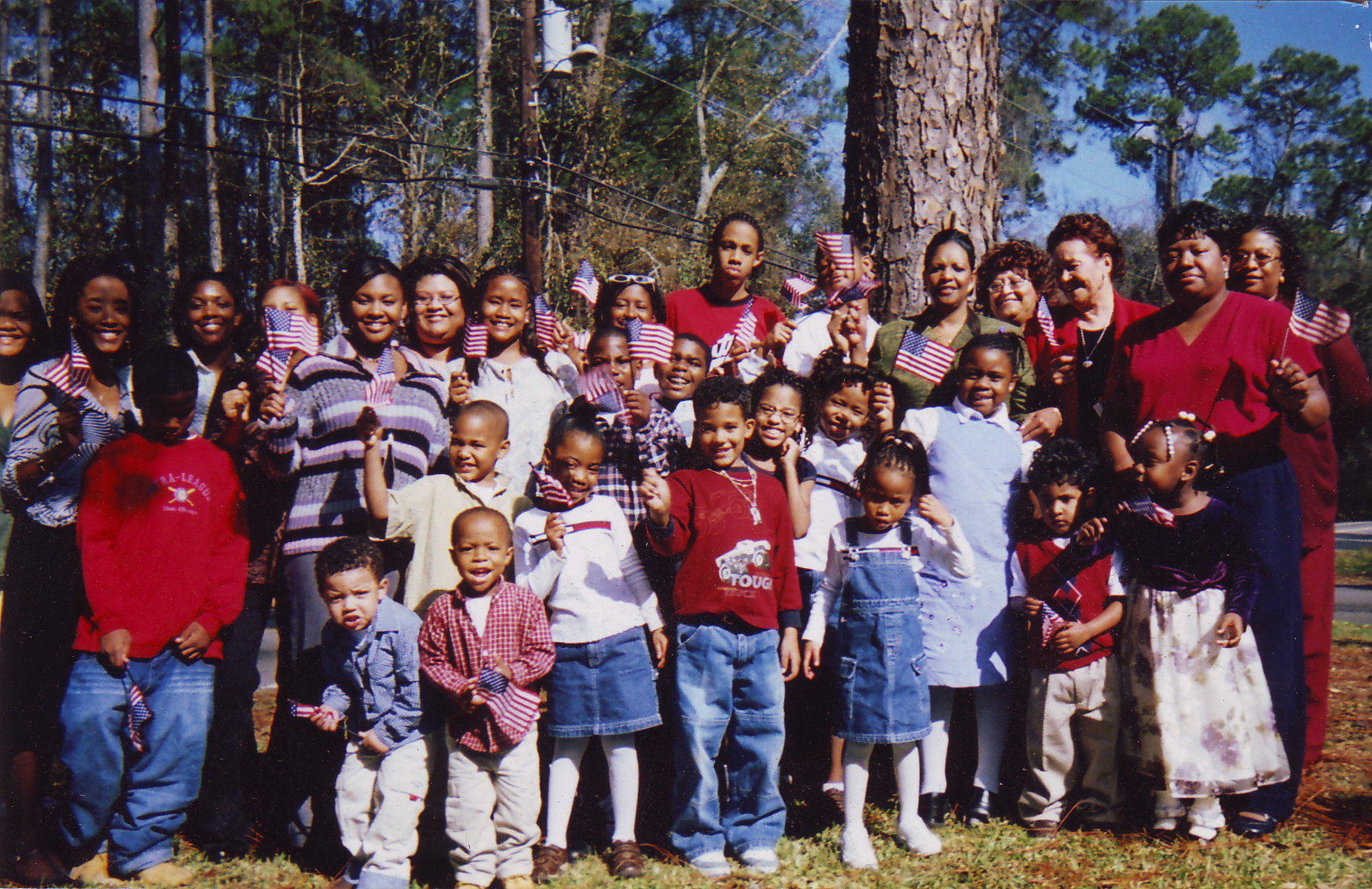
News from coastal Mississippi
Commercial development proposal in Turkey Creek wetlands back on the table. In Come Hell or High Water, community organizations and environmental groups fought to stop a development proposal on 1300 acres owned by Thomas “Butch” Ward in Turkey Creek wetlands. On July 28, The North Gulfport Community Land Trust, Gulf Restoration Network and Steps Coalition will host a public meeting about a new proposal by Ward’s son to fill hundreds of acres of wetlands there. WLOX reported that local officials do not yet know much about the development plans, which were described as a “mystery.”
Gulfport mayor and business groups call for removal of Confederate flag. The Sun Herald reported that Mayor Hewes wrote on Facebook that the Confederate emblem on the state flag should be removed because the symbol had been used to “distort” history, “perpetuate cultures of hatred, retard our progress and stigmatize our great State.” The Guardian reported that some Mississippi cities, including the state capitol, had removed the flag since the Charleston tragedy, and The Gulf Coast Business Council and the Mississippi Gulf Coast Chamber of Commerce called for the removal of the symbol.
Mississippi Gulf Coast commemoration of Bloody Sunday. In 1960, police stood by as a white mob attacked nonviolent protesters on a Mississippi beach as they waded into the Gulf in an effort to desegregate the beach. Turkey Creek was so important for baptism and swimming because African Americans could not access the Gulf beaches. In an article about the Juneteenth commemoration of the Biloxi Wade-In, Mississippi’s own “Bloody Sunday,” WXXV quoted Aria Mason, the granddaughter of the protest leader, who referred to the tragedy in Charleston: “The legacy of not really dealing with the culture of racism, a culture of injustice and prejudice and how it affects all of us — it’s a cancer …”
For more Gulf Coast community news and events see BridgetheGulfProject.org and the Gulf Coast Fund calendar.
This post is from the Come Hell or High Water newsletter. Sign up here.


